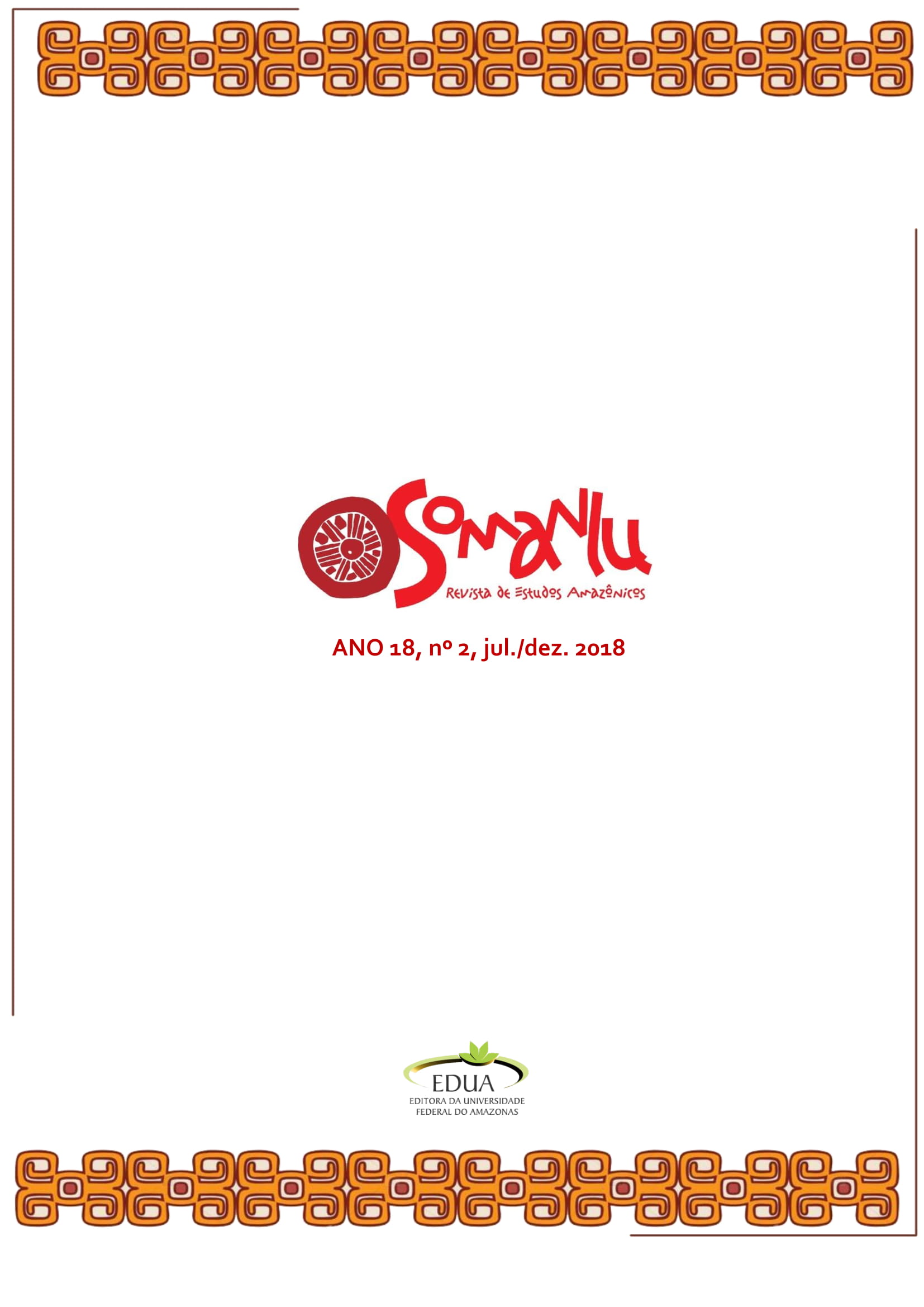Did our ancestors have sex?
Sexual diversity in the rock art of Serra da Capivara National Park, Piauí, Brazil
DOI:
https://doi.org/10.29327/233099.18.2-1Keywords:
Registros rupestres, Parque Nacional Serra da Capivara, Práticas sexuais, História Antiga do Brasil, Teoria QueerAbstract
And how did our ancestors practice sex? As studies already published in the area indicate, sexual practices were embedded in the daily lives of the peoples who inhabited the lands of Brazil long before the 1500s. Rock art records indicate that those people had varied sexual practices that seemed not yet regulated and normalized as they are today, as attested by several studies linked to queer perspectives. These practices included sex between people of the same sex, sex between people of different sexes, sex between people and animals, group sex between people, and sex between adults and children or at least in the presence of children. Through studies in the field of anthropology and archaeology, developed for more than 10 years in the Serra da Capivara National Park by Michel Justamand, and in contact with research on gender and sexuality by Leandro Colling, between January 29 and February 5, 2018, an expedition to the park was organized to visit archaeological sites with records of scenes of sexual and reproductive practices. Thus, the present study aims to present preliminary notes on what was revealed during this expedition, especially regarding scenes of sexual practices. In the presentation, we will use photographic records of the rock art scenes from the archaeological sites visited during the expedition, which relate to the theoretical frameworks on sexual practices in the Ancient History of Brazil.
Downloads
References
CASTRO, Sádia Gonçalves de. O elogio do cotidiano: educação ambiental e a pedagogia silenciosa da caatinga no sertão piauiense. Fortaleza: Edições UFC, 2011. COLLING, Leandro. Que os outros sejam o normal: tensões entre movimento LGBT e ativismo queer. Salvador: Editora da Universidade Federal da Bahia, 2015. COLLING, Leandro. Stonewall 40+ o que no Brasil?. Salvador: Editora da Universidade Federal da Bahia, 2011. FLICK, Uwe. Introdução à pesquisa qualitativa. 3. ed. Porto Alegre: Artmed, 2009.
FUMDHAM. Fundação Museu do Homem Americano. 2018. Disponível em: <http://www.fumdham.org.br/o-parque>. Acesso em: 13 Fev. 2018. GAMSON, Joshua. As sexualidades, a teoria queer e a pesquisa qualitativa. In: DEZIN, Norman K.; LINCOLN, Yvonna S. (Orgs.). O planejamento da pesquisa qualitativa: teorias e abordagens. 2. ed. Porto Alegre: Artmed, 2006. GIL, Antonio Carlos. Métodos e técnicas de pesquisa social. 6. ed. São Paulo: Atlas, 2009.
GOMES FILHO, Antoniel dos Santos. Corpo, sexo, gênero e biopolítica. In: MELO, M. A. S.; GOMES FILHO, A. S. QUEIROZ, Z. F. (Orgs.). Epistemologias em confronto no Direito: reinvenções, ressiginificações e representações a partir da interdisciplinaridade. Curitiba: EDITORA CRV, 2017.
GONTIJO, Fabiano de S.; SCHAAN, Denise P. Sexualidade e teoria queer: apontamentos para a arqueologia e antropologia brasileira. In: Revista de Arqueologia – Especial: Crítica Feminista e Arqueologia. n. 20. v. 2. 2017.
GUIDON, Niède. Arqueologia da região do Parque Nacional Serra da Capivara - Sudeste do Piauí. In: Com ciência – Revista Eletrônica de Jornalismo Científico, 2003. Disponível em: < http://www.comciencia.br/dossies-1-72/reportagens/arqueologia/arq10.shtml>. Acesso em: 20 Dez. 2017.
ICMBIO. Parque Nacional da Serra da Capivara. Disponível em: < http://www.icmbio.gov.br/portal/o-que-fazemos/visitacao/unidades-abertas-a-visitacao/199parque-nacional-da-serra-da-capivara.html>. Acesso em: 22 Jan. 2016.
JUSTAMAND, Michel. Corpos em evidência: cenas corpóreas antropomorfas rupestres em São Raimundo Nonato (PI). In: Revista Cordis – Revista Eletrônica de História Social da Cidade, n. 7, 2011. Disponível em: <https://revistas.pucsp.br/index.php/cordis/article/view/10384/7731>. Acesso em: 10 Dez. 2017.
JUSTAMAND, Michel. et al. A arte rupestre em perspectiva histórica: uma história escrita nas rochas. In: Revista de Arqueologia Pública, v.11, n. 1, 2017. Disponível em: < https://periodicos.sbu.unicamp.br/ojs/index.php/rap/article/view/8648451/16261>. Acesso em: 12 Dez. 2017. JUSTAMAND, Michel. O Brasil desconhecido: as pinturas rupestres de São Raimundo Nonato – PI. Tese (Doutorado em Ciências Sociais) – Pontifícia Universidade Católica de São Paulo, São Paulo, 2007. JUSTAMAND, Michel.; FUNARI, Pedro Paulo A. Representações da sexualidade e dos falos: nas cenas rupestres de São Raimundo Nonato-Piauí muito antes de 1500. In: Revista Sodebras, v. 9, n. 99, 2014. Disponível em: < http://www.sodebras.com.br/edicoes/N99.pdf>. Acesso em: 13 Dez. 2017. JUSTAMAND, Michel.; FUNARI, Pedro Paulo A. Representações das genitálias femininas e masculinas nas pinturas rupestres no Parque Nacional Serra da Capivara, PI, Brasil. In: Anuário de Arqueologia, n 8, 2016. Disponível em: < http://rephip.unr.edu.ar/handle/2133/6561>. Acesso em: 11 Dez. 2017.
MARTIN, Gabriela. Pré-história do Nordeste do Brasil. 2. ed. Recife: Editora Universitária da UFPE, 1997.
PESSIS, Anne-Marie; GUIDON, Niède. Registros rupestre e caracterização das etnias pré-históricas. In: VIDAL, Lux. (Org.). Grafismos indígenas: estudos de antropologia estética. 2. ed. São Paulo: Studio Nobel: FAPESP: Editora da Universidade de São Paulo, 2000.
UNESCO. Parque Nacional Serra da Capivara. 2018. Disponível em: < http://www.unesco.org/new/pt/brasilia/culture/world-heritage/list-of-world-heritage-in-brazil/serra-da-capivara/#c1348680>. Acesso em: 13 Fev. 2018.
WICHERS, Camila A. de Moraes. Narrativas arqueológicas e museológicas sob rasura: provocações feministas. In: Revista de Arqueologia – Especial: Crítica Feminista e Arqueologia. n. 20. v. 2. 2017.
Downloads
Published
How to Cite
Issue
Section
License

This work is licensed under a Creative Commons Attribution 4.0 International License.
A Somanlu: Revista de Estudos Amazônicos faz uso de licença Creative Commons de atribuição (CC BY 4.0)





